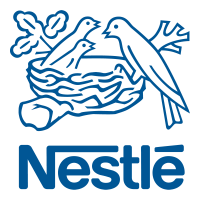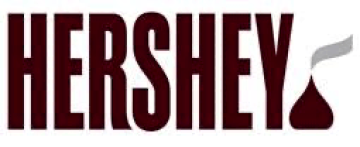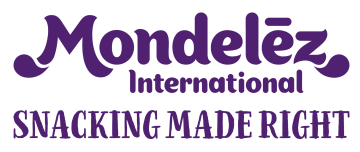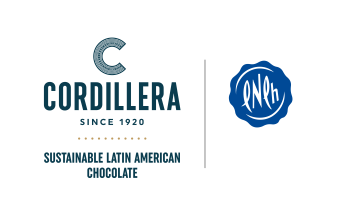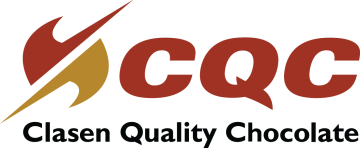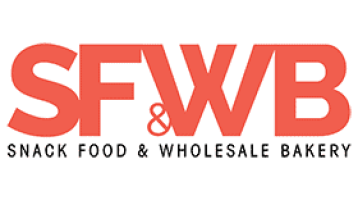About
The World Cocoa Foundation invites all stakeholders to Amsterdam for its flagship annual event, bringing together cocoa farmers, industry leaders, investors, NGOs, governments, donors and civil society.
Under the theme Securing Cocoa’s Future in a Changing World, this is your opportunity to align with the full value chain, share insight and shape responses to the sector’s biggest challenges, including climate disruption, regulatory shifts, modernisation, supply pressures and innovation.
Why attend?
- Engage with key actors across the cocoa ecosystem
- Explore practical responses to sustainability and sourcing challenges
- Collaborate on innovation and shared priorities
- Shape the sector’s future through collective action
Taking place during Amsterdam Cocoa Week, the event offers valuable opportunities to connect, partner and explore what’s next for cocoa.
Join the global conversation on cocoa’s sustainable future!
Accelerating resilience across the sector requires all stakeholders to play their role – and understand one another’s needs. The Partnership Meeting is an opportunity to connect, align, and act together.
Programme
Explore the Programme
The 2026 Partnership Meeting features two days of high-level dialogue, practical sessions, and cross-sector exchange focused on securing cocoa’s future in a changing world.
-
08:30 Plenary: Opening Speakers and Platinum Sponsor Presentation
-
09:00 Plenary: State of Trade & Regulation
This session brings together trade and regulation specialists from the European Commission, the International Trade Centre, policymakers of international trade and development from the International Cocoa Organisation and the European Parliament, to discuss the trade climate, regulation implementation, effectiveness, compliance challenges, and opportunities to deliver real impact for cocoa sustainability.
-
.jpg?token=a205806edc7ccdb319ba8040ba5dd978) ModeratorHenry BonsuUK Journalist & BroadcasterMaster of Ceremony
ModeratorHenry BonsuUK Journalist & BroadcasterMaster of Ceremony -
.png?token=aa4b5eb8dea8bdd1b2311f80409040bb) Lawrence AttipoeUN International Trade CentreAfrica Regional Coordinator
Lawrence AttipoeUN International Trade CentreAfrica Regional Coordinator -
.jpg?token=b0f1fa6a8b80a5fdc6402bfa3818e154) Michel ArrionInternational Cocoa Organization (ICCO)Executive Director
Michel ArrionInternational Cocoa Organization (ICCO)Executive Director -
.jpg?token=7d891e0a6fc7911d1d7ed531a188b893) Regis MeritanEuropean Commission, Directorate General for International PartnershipsSenior Expert
Regis MeritanEuropean Commission, Directorate General for International PartnershipsSenior Expert -
.jpg?token=8b91eb6f270b6d00b1b6cf614dc67555) Jessika van LeeuwenEuropean ParliamentMember
Jessika van LeeuwenEuropean ParliamentMember
-
-
10:15 Plenary: Driving Measurable Impact in Forest Protection and Restoration
With deforestation and forest degradation continuing to pose risks to landscapes and supply chains, the sector must identify scalable, credible, and practical approaches for forest protection and restoration. This session will bring together experts in policy, science, markets, and implementation to explore actionable strategies for mitigating forest loss, strengthening investment, and driving measurable outcomes. Panelists will highlight threats and monitoring challenges due to data gaps, examine technical approaches and successful case studies, discuss the business case and incentives, and identify pathways to overcome policy and reporting bottlenecks.
-
.jpg?token=da81996f591932b26d3af77cb96163f6) ModeratorDaniel ArancibiaProforestExecutive Director, Latin America
ModeratorDaniel ArancibiaProforestExecutive Director, Latin America -
.jpg?token=77daba76f1683370637095c413216801) Fernand BaleBureau National d’Etudes Techniques et de Developpement – BNETDDirector CIGN|BNETD
Fernand BaleBureau National d’Etudes Techniques et de Developpement – BNETDDirector CIGN|BNETD -
.jpg?token=0fca369cc438c066782ea163ac150e5c) Julian Christian FoxFood and Agriculture Organization (FAO)Team Leader, Forest Monitoring
Julian Christian FoxFood and Agriculture Organization (FAO)Team Leader, Forest Monitoring -
.jpg?token=14837a7734758efb584ee1b5062c835a) Nicolas MounardBarry CallebautVice President ESG, Sustainability & Traceability
Nicolas MounardBarry CallebautVice President ESG, Sustainability & Traceability -
.png?token=13f6c08296574cc921ce4a606b34ca10) Christopher Stewartofi (Olam Food Ingredients)Global Head, Sustainability Impact
Christopher Stewartofi (Olam Food Ingredients)Global Head, Sustainability Impact
-
-
11:15 Cocoa Break
-
11:45 Breakout Session: Forest Protection & Restoration
Deforestation and land degradation not only threaten biodiversity and carbon sinks but also undermine the resilience of cocoa production itself. Beyond cocoa, the global urgency to halt deforestation is central to meeting climate goals, restoring ecosystems, and safeguarding rural livelihoods that depend on healthy landscapes. As the sector embraces global regulatory shifts (such as the EU Deforestation Regulation) and increasing pressure from markets and consumers, the need to transition from deforestation-linked supply chains to models of forest protection and large-scale restoration is more urgent than ever.
This session will explore the critical intersections of policy, corporate action, community engagement, and finance, while also connecting cocoa’s journey to the broader sustainability agenda that calls for protecting nature, promoting just transitions, and scaling impact across agricultural commodities.
-
.jpg?token=11ee6e32b7b43471a95a6574d0969ee7) ModeratorAngela Tejada ChavezHershey Trading GmbHDirector of Sustainable Sourcing
ModeratorAngela Tejada ChavezHershey Trading GmbHDirector of Sustainable Sourcing -
.jpg?token=df9ea3acefbe501cded1e6b590b26707) Dietmar StoianCIFOR-ICRAFLead Scientist
Dietmar StoianCIFOR-ICRAFLead Scientist -
.png?token=2a5d8552763d968de1dfce1b5b8b18bb) George O’ben-EtchiCross River State Forestry CommissionChairman and Chief Executive Officer
George O’ben-EtchiCross River State Forestry CommissionChairman and Chief Executive Officer -
.jpg?token=a4162db68b8270812ea7d2739f3051b1) Hugh C.A. BrownForestry Commission, GhanaChief Executive
Hugh C.A. BrownForestry Commission, GhanaChief Executive -
.jpg?token=eb59e4a1969b6964452affef602a4d9b) Janice Weatherley-SinghWCS EUDirector
Janice Weatherley-SinghWCS EUDirector -
.png?token=13f6c08296574cc921ce4a606b34ca10) Christopher Stewartofi (Olam Food Ingredients)Global Head, Sustainability Impact
Christopher Stewartofi (Olam Food Ingredients)Global Head, Sustainability Impact
-
-
11:45 Breakout Session: Navigating EU Sustainability Regulations and Creating Transparent, Nature-Positive Supply Chains
With EU sustainability regulations such as CSRD, CSDDD, and EUDR coming into full force, alongside evolving voluntary frameworks like SBTi and SBTN, the regulatory landscape for creating nature-positive supply chains is becoming increasingly complex. This session will unpack current and anticipated regulations, explore how traceability is taking shape on the ground in producing countries, as well as examine global transparency. Panelists will share stories, lessons, and insights for stakeholders navigating these changes, and discuss takeaways for policy to support successful and inclusive supply chain transitions.
-
.jpg?token=d2000d86d5ede4b8dc3bb150d3460a40) Joris RuigewaardNetherlands Authority for Consumers & MarketsCoordinator and Project Lead
Joris RuigewaardNetherlands Authority for Consumers & MarketsCoordinator and Project Lead -
.jpg?token=9cdb0f56ee0a9a52deda1aab1c128e5b) Kate Newbury-HydeWorld Business Council for Sustainable DevelopmentSenior Manager, Agriculture & Food
Kate Newbury-HydeWorld Business Council for Sustainable DevelopmentSenior Manager, Agriculture & Food -
.png?token=1d83899156607abd4c725f469cd97660) Meriam WortelNature Conservation Domain, Netherlands Food and Consumer Product Safety AuthorityCoordinating Inspector
Meriam WortelNature Conservation Domain, Netherlands Food and Consumer Product Safety AuthorityCoordinating Inspector -
.jpg?token=5d1dc0cfbb991ade368ca7bbf9321286) ModeratorNicko DebenhamICESustainability Consultant
ModeratorNicko DebenhamICESustainability Consultant -
.jpg?token=b321a9e653480d2169cbe4a889b96f5b) Vera KöppenGIZ programme SAFE – Sustainable Agriculture for Forest EcosystemsAdvisor
Vera KöppenGIZ programme SAFE – Sustainable Agriculture for Forest EcosystemsAdvisor -
.jpg?token=3ec183ed953716eb2130444cba09fd36) Pedro AmaralMarsAssociate Director, Head of Cocoa Climate Sustainability
Pedro AmaralMarsAssociate Director, Head of Cocoa Climate Sustainability
-
-
11:45 Breakout Session: Connected for Change: Public & Private Synergy to End Child Labour
Child labour remains a persistent challenge in cocoa-growing regions, often exacerbated by fragmented monitoring systems and limited coordination between public and private actors. In response to new European Union regulations on deforestation and corporate due diligence, Côte d’Ivoire and Ghana have launched efforts to integrate their national child labor monitoring systems (SOSTECI and GCLMS) with private sector traceability tools (CLMRS). This session will explore how these systems are being aligned to create a unified framework for child protection and traceability, and what this means for cocoa supply chains. Speakers will share insights from field implementation, policy development, and technological innovation, highlighting the opportunities and challenges of system interoperability. Key questions include: How can we ensure data privacy while enabling collaboration? What governance models support sustainable integration? And how can we measure real impact on child labor reduction? The conversation will bring together government representatives, industry leaders, and child protection experts to chart a path forward.
-
.jpg?token=bb7cb69f892735625bf542b68d037d1a) Antonis PatrikiosDentonsPartner, Co-chair Global Privacy & Cybersecurity Group and Global TMT Sector Lead
Antonis PatrikiosDentonsPartner, Co-chair Global Privacy & Cybersecurity Group and Global TMT Sector Lead -
.jpg?token=10eb6f39cbaa85d62c37e6cc39d9daa9) ModeratorJeff MorganSucden CocoaSenior Advisor for Cocoa Sustainability
ModeratorJeff MorganSucden CocoaSenior Advisor for Cocoa Sustainability -
.jpg?token=4b3ad35ba6e55585926defdd72268a2d) Matthias LangeInternational Cocoa InitiativeExecutive Director
Matthias LangeInternational Cocoa InitiativeExecutive Director -
.jpg?token=9795a486b3084cb1426069a10252e513) Fanny ButlerKoltivaHead of Market EMEA
Fanny ButlerKoltivaHead of Market EMEA -
.jpg?token=642cf925003db0a19157b8ec91480d65) Martin N’guettiaMinistry of Employment and Social ProtectionDirector of Fight Against Child Labor and Executive Secretary of Interministerial Committee for the Fight Against Trafficking, Exploitation, and Child Labor
Martin N’guettiaMinistry of Employment and Social ProtectionDirector of Fight Against Child Labor and Executive Secretary of Interministerial Committee for the Fight Against Trafficking, Exploitation, and Child Labor
-
-
13:00 Lunch break Cocoa TechXchange
-
14:15 Plenary: WCF Strategy Presentation
-
14:45 Plenary: Cocoa Resilience at Risk: Confronting the growing threat of Cocoa Diseases
Emerging and persistent cocoa diseases, including swollen shoot virus, frosty pod rot, and black pod, pose a mounting threat to sustainable cocoa production, farmer incomes, and global supply. Despite years of research and training efforts, effective disease management remains elusive in many regions. This session brings together global scientific, institutional, footprint/certification entity and farmer perspectives to address this challenge and explore the value of coordinated global responses.
-
.jpg?token=9768b64294ba99d89972db7996411541) Cristiano VillelaCocoa Innovation Center (CIC)Scientific Director
Cristiano VillelaCocoa Innovation Center (CIC)Scientific Director -
.jpg?token=9c9e90a8cf7e73cc53527bb3b4ad9658) Joanna HwuMarsSr. Director Cocoa Plant Science & Operations
Joanna HwuMarsSr. Director Cocoa Plant Science & Operations -
.jpg?token=1237ad33fc0a254f79aa394de3575ce2) Koffié KouakouICRAF Côte d’IvoireResearch Scientist
Koffié KouakouICRAF Côte d’IvoireResearch Scientist -
.jpg?token=00aa8ade15c7fdab04cb6463f783734c) ModeratorKristy LeissleAfrican Cocoa Marketplace, IncFounder & CEO
ModeratorKristy LeissleAfrican Cocoa Marketplace, IncFounder & CEO -
.png?token=b212ef3a51013917986cbac95d25f2a4) Rafael ChanofiHead of Plant Science Global for Cocoa
Rafael ChanofiHead of Plant Science Global for Cocoa
-
-
15:45 Cocoa Break
-
16:15 Breakout Session: Disease Breakout Session
Following the plenary, this session focuses on the details: the practical tools, institutional partnerships and community-driven approaches needed to mitigate and remediate the impact of CSSVD in West Africa drawing lessons from experience in Brazil and Ecuador.
-
.jpg?token=8493841e224ff99d9add68e8f2065bbd) Andrew DaymondUniversity of ReadingSenior Research Fellow, School of Agriculture, Policy and Development
Andrew DaymondUniversity of ReadingSenior Research Fellow, School of Agriculture, Policy and Development -
.jpg?token=6f5d10abf5c3fcb03d9419e5ad588509) Céline JacksonEnveritasSenior Project Manager
Céline JacksonEnveritasSenior Project Manager -
.png?token=aa4b5eb8dea8bdd1b2311f80409040bb) ModeratorLawrence AttipoeUN International Trade CentreAfrica Regional Coordinator
ModeratorLawrence AttipoeUN International Trade CentreAfrica Regional Coordinator -
.jpg?token=13034fe67856863e301416e4774f749d) Theresa AmeyaaAsunafo-North UnionCocoa Farmer & Premium committee Chairperson
Theresa AmeyaaAsunafo-North UnionCocoa Farmer & Premium committee Chairperson -
.png?token=c01724db41d258d3ea55bef32e4d1546) Juliette CodyBarry CallebautDirector, Global Sustainability Programs
Juliette CodyBarry CallebautDirector, Global Sustainability Programs
-
-
16:15 Breakout Session: Harnessing Technology Innovation to secure cocoa’s future
Technology and new programme approaches are rapidly reshaping how cocoa is produced, traded and consumed in a changing global environment. From digital traceability systems to precision agriculture to direct payments, innovations offer new opportunities to improve transparency, farmer resilience, and environmental sustainability. Yet, challenges remain: how do we ensure that smallholder farmers benefit equitably from these tools? What are the risks of excluding vulnerable groups in the digital transition?
This session will bring together industry leaders, tech innovators, and farmer-focused organisations to explore the promise and pitfalls of digital transformation in cocoa.
-
.jpg?token=6730a2d9845efdafa53cee4288f96605) Carla D. MartinHarvard UniversityLecturer in African and African American Studies
Carla D. MartinHarvard UniversityLecturer in African and African American Studies -
.jpg?token=3953a98edc73588489dbfc56e1444576) ModeratorMawuli CoffieWorld Cocoa FoundationCountry Director, Ghana
ModeratorMawuli CoffieWorld Cocoa FoundationCountry Director, Ghana -
.jpg?token=041506cd5ef5e7a20c654b46a5a44e52) Randy JagtDeloitte GlobalFuture of Food Global Lead & Strategy Partner
Randy JagtDeloitte GlobalFuture of Food Global Lead & Strategy Partner -
.jpg?token=685a42e1a7cc573426a706ef370a21f3) Worlali SenyoFarmerline GroupVice President of Corporate Services
Worlali SenyoFarmerline GroupVice President of Corporate Services -
.jpg?token=572690d12dadfa9bd8d430ba85611c34) Pedro RoncaP&A/CocoaAction BrasilDirector
Pedro RoncaP&A/CocoaAction BrasilDirector
-
-
16:15 Breakout Session: Cocoa GHG Accounting in Action: Insights, Challenges, and the Road Ahead
As part of WCF’s ongoing work to strengthen carbon accounting in the cocoa sector, this session brings together WCF member companies, Quantis, and cross-commodity experts to share insights from the first months of using the Cocoa GHG Accounting Manual. Panelists will discuss practical application of the manual, including lessons learned and strategies to overcome remaining challenges in Scope 3 reporting. We will address key questions that have been raised by companies, and we will explore with cross-commodity experts what it would take to align cocoa sector approaches with other sectors such as coffee.
-
.png?token=fdaf217b0ff79a93670aa361c9f68e6a) ModeratorAlexi ErnstoffQuantisSenior Sustainability Consultant - Principle Expert - Land and Agriculture
ModeratorAlexi ErnstoffQuantisSenior Sustainability Consultant - Principle Expert - Land and Agriculture -
.jpg?token=a2943c40ee80dc94113c76812778096f) Brenda Mariana HuertaFairtrade InternationalSenior Advisor, Climate & Environment
Brenda Mariana HuertaFairtrade InternationalSenior Advisor, Climate & Environment -
.jpg?token=a629b1fba1d699d7f8ee120adfa40ae9) Cédric van CutsemMondelēz InternationalSenior Director Cocoa Life
Cédric van CutsemMondelēz InternationalSenior Director Cocoa Life -
.jpg?token=53b2270e905b0c891ba02a81b36c8d04) Dominique HermanCIFOR-ICRAFGlobal Technical Lead of Resilient Landscapes
Dominique HermanCIFOR-ICRAFGlobal Technical Lead of Resilient Landscapes -
.png?token=65160eff07e799704651c249c1ecc1a9) Yazmin LeónECOMCarbon Manager
Yazmin LeónECOMCarbon Manager -
.jpg?token=e87ac949f1bc955505dfe2c24098df2b) Matt SilveiraWinrock InternationalAssociate Director, Sustainability Services
Matt SilveiraWinrock InternationalAssociate Director, Sustainability Services
-
-
17:30 Reception: Women at the Heart of Sustainable Cocoa Cocoa TechXchange
Celebrating the International Year of Women Farmers, sponsored by Hershey
-
08:30 Plenary: Gold Sponsor Presentation
-
08:45 Plenary: Cocoa at the Crossroads: The Future of Origin-Country Leadership in a Changing World
As the world’s leading cocoa-producing countries, Côte d’Ivoire and Ghana remain central to the future of the global cocoa economy. In an era defined by shifting consumer preferences, climate change, sustainability regulations, and evolving trade dynamics, the two nations face both unprecedented challenges and transformative opportunities. This fireside chat will provide a rare and intimate dialogue with senior government officials as they share perspectives on their national strategies, bilateral cooperation, and vision for securing cocoa’s future.
-
09:30 Plenary: Cocoa Under Pressure: Strategies for a Shifting Market
This panel brings together senior business leaders to explore the impact of higher prices and sustainability issues on consumer demand and the challenges of adapting to an ever-evolving regulatory landscape. Participants will hear insights on how companies can maintain profitability while investing in long-term sustainability across the cocoa value chain.
-
.jpg?token=d0f6fdced016d662e85087e083ad1035) Francesco TramontinFerreroVice President of Global Public Affairs and the European Government Affairs and Communications
Francesco TramontinFerreroVice President of Global Public Affairs and the European Government Affairs and Communications -
.jpg?token=960adbd157d92f4b725a66c5e3fd64ce) ModeratorHelena Connors3Keel & Retailer Cocoa CollaborationSenior Consultant
ModeratorHelena Connors3Keel & Retailer Cocoa CollaborationSenior Consultant -
.jpg?token=a49c2df2d5aaa4340783fdee74c678e4) Julia BuechRabobankSenior Analyst
Julia BuechRabobankSenior Analyst -
.jpg?token=b67aac6e8c0b4fa5f8569479bfc17c75) Rachel VujovicALDI SOUTH GroupGlobal Sustainability Director
Rachel VujovicALDI SOUTH GroupGlobal Sustainability Director -
.jpg?token=59b67be6f8f453f3202c55ad454cb304) Gary GuittardGuittard Chocolate CompanyCEO
Gary GuittardGuittard Chocolate CompanyCEO
-
-
10:30 Cocoa Break
-
11:00 Plenary: Pathways to Scope 3 Decarbonization: Navigating Gaps and Delivering Net-Zero Commitments
Countries and organisations worldwide are racing to implement decarbonization strategies to keep global warming below 1.5°C by 2030, in line with the Paris Climate Agreement. This panel brings together leading policy and technical experts and industry voices to unpack upcoming changes in key carbon accounting frameworks such as the GHG Protocol and SBTi FLAG, and to examine the real-world challenges of implementing net-zero strategies across supply chains. Panelists will explore challenges that hinder progress on Scope 3 decarbonization, solutions, and opportunities for collaboration.
-
.jpg?token=c4b71b92a4027c4f09a855f370dc1869) Kim SchoppinkScience Based Targets initiative (SBTi)Europe Regional Lead
Kim SchoppinkScience Based Targets initiative (SBTi)Europe Regional Lead -
.jpg?token=d5870498d9964dfdb635e3ce8784233d) Niels HaakConservation InternationalDirector Sustainable Coffee Partnerships
Niels HaakConservation InternationalDirector Sustainable Coffee Partnerships -
.jpg?token=bcfe71523a5458077204c7d6d7fb7641) Tilmann SilberBarry CallebautHead of Net Zero
Tilmann SilberBarry CallebautHead of Net Zero -
.png?token=df3d97191849d1e33438dd08cfd32201) Veronika PountchevaInternational Sustainability Standards Board (ISSB)ISSB member
Veronika PountchevaInternational Sustainability Standards Board (ISSB)ISSB member -
.jpg?token=6b0c5b6913392cdcec312e6df8bbee7a) ModeratorAdriaan KorthuisClimate FocusCo-founder and Managing Partner
ModeratorAdriaan KorthuisClimate FocusCo-founder and Managing Partner
-
-
12:00 Lunch Break
-
13:30 Plenary: Shaping Tomorrow’s Cocoa: Innovation and Influence from Emerging Origins
Cocoa’s future is no longer defined solely by West Africa. Emerging origins such as Brazil, Ecuador, Nigeria, Cameroon, and Indonesia are reshaping the global cocoa landscape with growing production, unique flavor profiles, and new policy approaches. These countries face both opportunities and challenges: navigating sustainability expectations, climate resilience, and farmer prosperity while competing in a market increasingly driven by traceability, quality, and compliance. This high-level international panel will bring together leaders from these origins to discuss: How are emerging producers positioning themselves in a changing global cocoa economy? What innovative policies, market strategies, and sustainability models are they adopting? And how will their collective voice influence the balance of power in the global cocoa sector?
-
.jpg?token=a205806edc7ccdb319ba8040ba5dd978) ModeratorHenry BonsuUK Journalist & BroadcasterMaster of Ceremony
ModeratorHenry BonsuUK Journalist & BroadcasterMaster of Ceremony -
.jpg?token=941a37058587abb8ce7e169f1b8b0e28) Lanns AlmeidaBahiaterSuperintendent
Lanns AlmeidaBahiaterSuperintendent -
.jpg?token=459193008448d2340ecaaa73b747b94f) Michael NdopingNational Cocoa and Coffee Board (ONCC)Director General
Michael NdopingNational Cocoa and Coffee Board (ONCC)Director General -
.jpg?token=04e030ec83ac56e7b756919b7635521e) Raquel Solís GuevaraMinistry of Agriculture, Livestock, and Fisheries, Government of EcuadorDeputy Minister of Agricultural Production Development
Raquel Solís GuevaraMinistry of Agriculture, Livestock, and Fisheries, Government of EcuadorDeputy Minister of Agricultural Production Development -
.jpg?token=c9acaab277ec02de119466eca9c97fbd) Musa M. UmarNigeria’s Federal Ministry of Agriculture and Food Security (FMAFS)Director
Musa M. UmarNigeria’s Federal Ministry of Agriculture and Food Security (FMAFS)Director
-
-
14:30 Cocoa Break
-
15:00 Breakout Session: The Next Frontier: Biodiversity in Cocoa Landscapes
With biodiversity-related compliance potentially on the horizon through legislation such as the CSDDD and CSRD, the sector must identify scalable, credible, and practical ways to measure and report nature-positive outcomes. This session will bring together experts in policy, science, markets, and implementation to explore actionable strategies for integrating biodiversity into both regulatory frameworks and their own corporate strategies.
-
.jpg?token=1f08698ea430110923f70b5305a41934) Crinan JarrettSwiss Ornithological InstitutePost-doctoral Researcher
Crinan JarrettSwiss Ornithological InstitutePost-doctoral Researcher -
.jpg?token=1719f3db228287c88b20211117b1d2f0) Jan RaesUNEP FILead on Finance and Plastics
Jan RaesUNEP FILead on Finance and Plastics -
.jpg?token=80850d90add4d00585da7b38eff7f4ed) Jorge LeónCordilleraB2B Sustainability Manager
Jorge LeónCordilleraB2B Sustainability Manager -
.jpg?token=e38f3f5b95575d3b381fbbecf7142488) Kathryn MinczukThe Nature ConservancyBiodiversity Credits Manager
Kathryn MinczukThe Nature ConservancyBiodiversity Credits Manager -
.jpg?token=299de7441e337d9c0c811c3960cec432) Nicolas PoolenWWF InternationalSenior Manager, Nature in Transition Planning at the Taskforce on Nature-related Financial Disclosures (TNFD)
Nicolas PoolenWWF InternationalSenior Manager, Nature in Transition Planning at the Taskforce on Nature-related Financial Disclosures (TNFD) -
.jpg?token=d57a2333205476f31ac25cbed2d23e04) ModeratorBrigitte CampfensKPMGDirector, EMA Centre of Excellence Sustainable Supply Chains & Human Rights
ModeratorBrigitte CampfensKPMGDirector, EMA Centre of Excellence Sustainable Supply Chains & Human Rights
-
-
15:00 Breakout Session: Land Tenure: Securing Rights for Sustainable Cocoa
This session will explore the intersection of land tenure security and corporate climate action, focusing on Côte d’Ivoire’s cocoa sector. Land tenure insecurity remains one of the most persistent structural barriers to achieving sustainable cocoa production, deforestation-free supply chains, and credible Scope 3 decarbonization. Without secure land rights, farmers lack the long-term incentives to invest in sustainable practices, while companies face challenges in meeting global climate and due diligence frameworks. The session will bring together experts from government, industry, and civil society to discuss how land tenure reform can unlock climate-smart agriculture, enhance traceability, and support corporate compliance with emerging environmental regulations. Key questions will include: What are the current barriers to land tenure reform? How can companies align their decarbonization strategies with local realities? And what collaborative models are showing promise?
-
.jpg?token=268cfdcaea12714c31c3aa0aa68865b3) ModeratorJean-Paul AkaUNDP Côte d’IvoireHead of the Sustainable Development and Climate Change Unit
ModeratorJean-Paul AkaUNDP Côte d’IvoireHead of the Sustainable Development and Climate Change Unit -
.jpg?token=0668f230797f9764e2b73ae6b0ead236) Remi van BalenETG | Beyond BeansProgramme Manager Agroforestry & Environment
Remi van BalenETG | Beyond BeansProgramme Manager Agroforestry & Environment -
.png?token=ae7c22ebb19adadae854e2433e695314) Thomas VaassenMeridia VerifyCo-founder and CEO
Thomas VaassenMeridia VerifyCo-founder and CEO -
.jpg?token=b321a9e653480d2169cbe4a889b96f5b) Vera KöppenGIZ programme SAFE – Sustainable Agriculture for Forest EcosystemsAdvisor
Vera KöppenGIZ programme SAFE – Sustainable Agriculture for Forest EcosystemsAdvisor -
.png?token=099751ace928fa3cad14ef24fa70a376) Mathias KoffiRural Land AgencyDirector of Technical Operations
Mathias KoffiRural Land AgencyDirector of Technical Operations
-
-
15:00 Breakout Session: Programme Innovation as a driver of transformation in the cocoa sector
While investments and initiatives have grown, challenges such as farmer income insecurity, deforestation pressures, and shifting regulatory demands highlight the need for new approaches. This session will explore how companies, governments, and civil society can test, scale, and sustain innovative programmes that not only meet compliance requirements but also deliver lasting impact for farmers, communities, and landscapes. Key questions include: What new models are emerging that combine profitability with resilience? How can innovation move from pilots to scale? What role do partnerships and finance play in accelerating adoption? Speakers will share practical examples, successes, and lessons to spark fresh thinking and bold collaboration.
-
.jpg?token=ba8bcf88ca516771fd29ac0174fd1033) Darrell HighNestléCocoa Manager
Darrell HighNestléCocoa Manager -
.jpg?token=7416dfc85657cdcc18434423453e0b9c) Josias do Amaral FilhoLabor RuralHead of Agriculture
Josias do Amaral FilhoLabor RuralHead of Agriculture -
.jpg?token=00aa8ade15c7fdab04cb6463f783734c) ModeratorKristy LeissleAfrican Cocoa Marketplace, IncFounder & CEO
ModeratorKristy LeissleAfrican Cocoa Marketplace, IncFounder & CEO -
.jpg?token=5f75c776eb0a8d81ab80ee54b79ababe) Santiago GowlandRainforest AllianceChief Executive Officer
Santiago GowlandRainforest AllianceChief Executive Officer -
.jpg?token=9de0cdb7cda195925647bce59502749d) Shadrack Osei FrimpongCocoa360Founder
Shadrack Osei FrimpongCocoa360Founder -
.jpg?token=682aa33e4c81614eea3c3107650d9ef7) Michael AlanduCARE InternationalCountry Director Ghana
Michael AlanduCARE InternationalCountry Director Ghana
-
-
16:15 Plenary: International Associations Panel
Industry and civil society representatives from Europe, the US, Latin America and Africa reflect on the lessons learned over the past two days and the key priorities identified.
-
.jpg?token=da858145b7224ec20886e6e9d5e26e5b) Anna Paula LosiAIPC – the Brazilian Association of Cocoa Processing IndustriesChief Executive Officer
Anna Paula LosiAIPC – the Brazilian Association of Cocoa Processing IndustriesChief Executive Officer -
.jpg?token=86a9126b53701e5cd60a5cc9c14e7481) Brian McKeonNational Confectioners AssociationSenior Vice President of Public Policy
Brian McKeonNational Confectioners AssociationSenior Vice President of Public Policy -
.jpg?token=5aab27d28423a6565a2b628c0cbd9308) Filippo VeglioSwiss Platform for Sustainable Cocoa (SWISSCO)President
Filippo VeglioSwiss Platform for Sustainable Cocoa (SWISSCO)President -
.jpg?token=11c1ab7e788692742fc467d926000351) Merlyn Casanova LoorANECACAOExecutive Director
Merlyn Casanova LoorANECACAOExecutive Director -
.png?token=9d831310680b011337f83b66ae5a6224) ModeratorTricia BranniganThe Hershey CompanyVice President & Chief Procurement Officer
ModeratorTricia BranniganThe Hershey CompanyVice President & Chief Procurement Officer -
.jpg?token=ddcc3960fd18b1db50db0802f4302845) Abdulahi AliyuRikoltoGlobal Director for the Cocoa and Coffee Programme
Abdulahi AliyuRikoltoGlobal Director for the Cocoa and Coffee Programme
-
-
17:10 President's Closing Word
-
08:30 Special Session
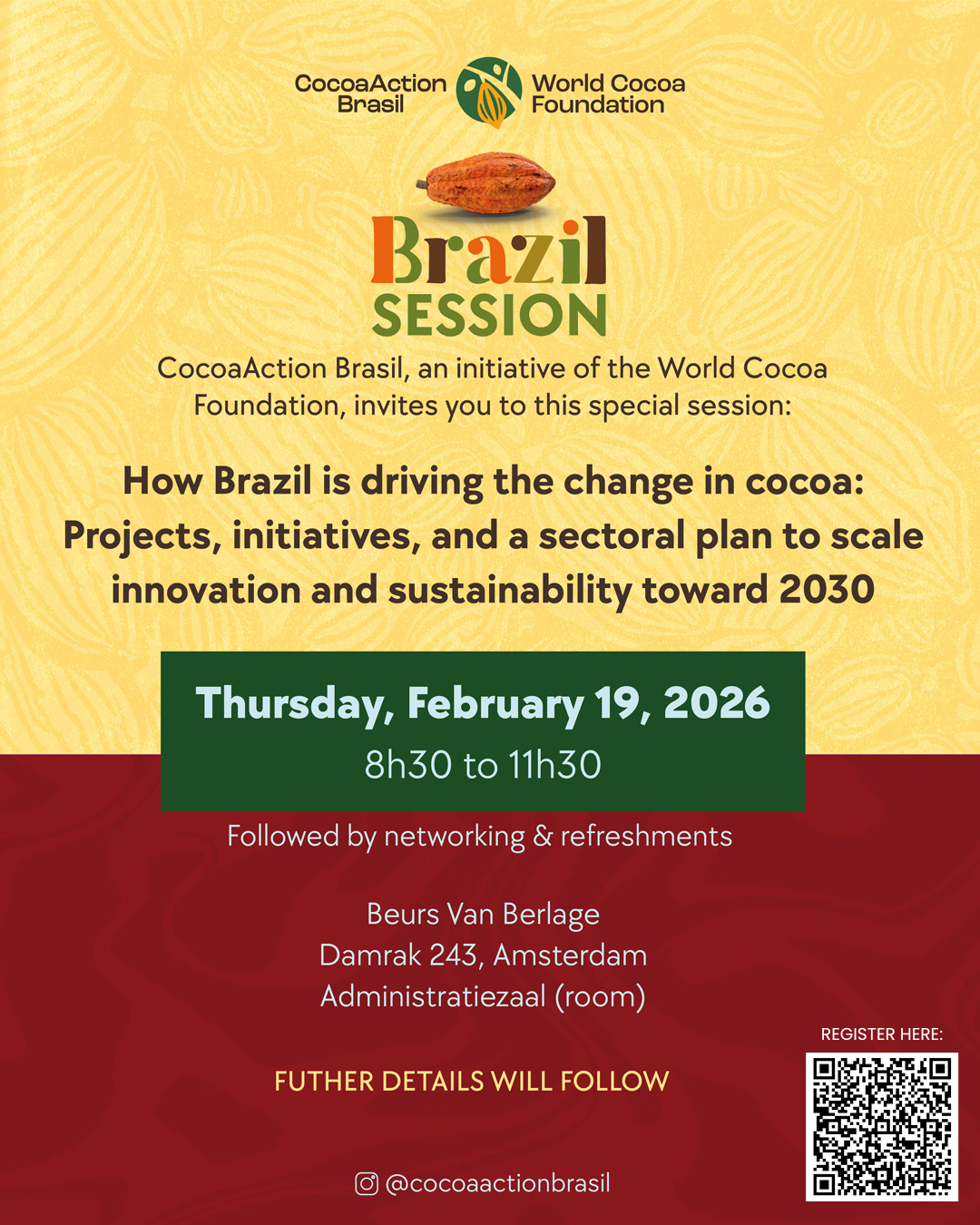
Please register via the QR code or the link here. We are looking forward to seeing you there!
-
.jpg?token=ddcc3960fd18b1db50db0802f4302845) Abdulahi AliyuRikoltoGlobal Director for the Cocoa and Coffee Programme
Abdulahi AliyuRikoltoGlobal Director for the Cocoa and Coffee Programme -
.jpg?token=6b0c5b6913392cdcec312e6df8bbee7a) Adriaan KorthuisClimate FocusCo-founder and Managing Partner
Adriaan KorthuisClimate FocusCo-founder and Managing Partner -
.jpg?token=40f1cdbc6bd84e745b73f6e69f586ddc) Akissi Martine KouaméCAPRODBusinesswoman / Attiéké Producer / Community Health Worker
Akissi Martine KouaméCAPRODBusinesswoman / Attiéké Producer / Community Health Worker -
.png?token=fdaf217b0ff79a93670aa361c9f68e6a) Alexi ErnstoffQuantisSenior Sustainability Consultant - Principle Expert - Land and Agriculture
Alexi ErnstoffQuantisSenior Sustainability Consultant - Principle Expert - Land and Agriculture -
.jpg?token=8493841e224ff99d9add68e8f2065bbd) Andrew DaymondUniversity of ReadingSenior Research Fellow, School of Agriculture, Policy and Development
Andrew DaymondUniversity of ReadingSenior Research Fellow, School of Agriculture, Policy and Development -
.jpg?token=11ee6e32b7b43471a95a6574d0969ee7) Angela Tejada ChavezHershey Trading GmbHDirector of Sustainable Sourcing
Angela Tejada ChavezHershey Trading GmbHDirector of Sustainable Sourcing -
.jpg?token=da858145b7224ec20886e6e9d5e26e5b) Anna Paula LosiAIPC – the Brazilian Association of Cocoa Processing IndustriesChief Executive Officer
Anna Paula LosiAIPC – the Brazilian Association of Cocoa Processing IndustriesChief Executive Officer -
.jpg?token=bb7cb69f892735625bf542b68d037d1a) Antonis PatrikiosDentonsPartner, Co-chair Global Privacy & Cybersecurity Group and Global TMT Sector Lead
Antonis PatrikiosDentonsPartner, Co-chair Global Privacy & Cybersecurity Group and Global TMT Sector Lead -
.jpg?token=a2943c40ee80dc94113c76812778096f) Brenda Mariana HuertaFairtrade InternationalSenior Advisor, Climate & Environment
Brenda Mariana HuertaFairtrade InternationalSenior Advisor, Climate & Environment -
.jpg?token=86a9126b53701e5cd60a5cc9c14e7481) Brian McKeonNational Confectioners AssociationSenior Vice President of Public Policy
Brian McKeonNational Confectioners AssociationSenior Vice President of Public Policy -
.jpg?token=d57a2333205476f31ac25cbed2d23e04) Brigitte CampfensKPMGDirector, EMA Centre of Excellence Sustainable Supply Chains & Human Rights
Brigitte CampfensKPMGDirector, EMA Centre of Excellence Sustainable Supply Chains & Human Rights -
.jpg?token=6730a2d9845efdafa53cee4288f96605) Carla D. MartinHarvard UniversityLecturer in African and African American Studies
Carla D. MartinHarvard UniversityLecturer in African and African American Studies -
.jpg?token=a629b1fba1d699d7f8ee120adfa40ae9) Cédric van CutsemMondelēz InternationalSenior Director Cocoa Life
Cédric van CutsemMondelēz InternationalSenior Director Cocoa Life -
.jpg?token=6f5d10abf5c3fcb03d9419e5ad588509) Céline JacksonEnveritasSenior Project Manager
Céline JacksonEnveritasSenior Project Manager -
.jpg?token=8f8c2ce57e6bb1cfe9fb56d7a3fee959) Chris VincentWorld Cocoa FoundationPresident
Chris VincentWorld Cocoa FoundationPresident -
.png?token=13f6c08296574cc921ce4a606b34ca10) Christopher Stewartofi (Olam Food Ingredients)Global Head, Sustainability Impact
Christopher Stewartofi (Olam Food Ingredients)Global Head, Sustainability Impact -
.jpg?token=1f08698ea430110923f70b5305a41934) Crinan JarrettSwiss Ornithological InstitutePost-doctoral Researcher
Crinan JarrettSwiss Ornithological InstitutePost-doctoral Researcher -
.jpg?token=9768b64294ba99d89972db7996411541) Cristiano VillelaCocoa Innovation Center (CIC)Scientific Director
Cristiano VillelaCocoa Innovation Center (CIC)Scientific Director -
.jpg?token=da81996f591932b26d3af77cb96163f6) Daniel ArancibiaProforestExecutive Director, Latin America
Daniel ArancibiaProforestExecutive Director, Latin America -
.jpg?token=ba8bcf88ca516771fd29ac0174fd1033) Darrell HighNestléCocoa Manager
Darrell HighNestléCocoa Manager -
.jpg?token=df9ea3acefbe501cded1e6b590b26707) Dietmar StoianCIFOR-ICRAFLead Scientist
Dietmar StoianCIFOR-ICRAFLead Scientist -
.jpg?token=53b2270e905b0c891ba02a81b36c8d04) Dominique HermanCIFOR-ICRAFGlobal Technical Lead of Resilient Landscapes
Dominique HermanCIFOR-ICRAFGlobal Technical Lead of Resilient Landscapes -
.jpg?token=9795a486b3084cb1426069a10252e513) Fanny ButlerKoltivaHead of Market EMEA
Fanny ButlerKoltivaHead of Market EMEA -
.jpg?token=77daba76f1683370637095c413216801) Fernand BaleBureau National d’Etudes Techniques et de Developpement – BNETDDirector CIGN|BNETD
Fernand BaleBureau National d’Etudes Techniques et de Developpement – BNETDDirector CIGN|BNETD -
.jpg?token=5aab27d28423a6565a2b628c0cbd9308) Filippo VeglioSwiss Platform for Sustainable Cocoa (SWISSCO)President
Filippo VeglioSwiss Platform for Sustainable Cocoa (SWISSCO)President -
.jpg?token=d0f6fdced016d662e85087e083ad1035) Francesco TramontinFerreroVice President of Global Public Affairs and the European Government Affairs and Communications
Francesco TramontinFerreroVice President of Global Public Affairs and the European Government Affairs and Communications -
.jpg?token=11e8506a566d1092ebf3a3adb1edd0c9) Francis BaahGhana Cocoa BoardDeputy Chief Executive
Francis BaahGhana Cocoa BoardDeputy Chief Executive -
.jpg?token=59b67be6f8f453f3202c55ad454cb304) Gary GuittardGuittard Chocolate CompanyCEO
Gary GuittardGuittard Chocolate CompanyCEO -
.png?token=2a5d8552763d968de1dfce1b5b8b18bb) George O’ben-EtchiCross River State Forestry CommissionChairman and Chief Executive Officer
George O’ben-EtchiCross River State Forestry CommissionChairman and Chief Executive Officer -
.jpg?token=960adbd157d92f4b725a66c5e3fd64ce) Helena Connors3Keel & Retailer Cocoa CollaborationSenior Consultant
Helena Connors3Keel & Retailer Cocoa CollaborationSenior Consultant -
.jpg?token=a205806edc7ccdb319ba8040ba5dd978) Henry BonsuUK Journalist & BroadcasterMaster of Ceremony
Henry BonsuUK Journalist & BroadcasterMaster of Ceremony -
.jpg?token=a4162db68b8270812ea7d2739f3051b1) Hugh C.A. BrownForestry Commission, GhanaChief Executive
Hugh C.A. BrownForestry Commission, GhanaChief Executive -
.jpg?token=1719f3db228287c88b20211117b1d2f0) Jan RaesUNEP FILead on Finance and Plastics
Jan RaesUNEP FILead on Finance and Plastics -
.jpg?token=eb59e4a1969b6964452affef602a4d9b) Janice Weatherley-SinghWCS EUDirector
Janice Weatherley-SinghWCS EUDirector -
.jpg?token=268cfdcaea12714c31c3aa0aa68865b3) Jean-Paul AkaUNDP Côte d’IvoireHead of the Sustainable Development and Climate Change Unit
Jean-Paul AkaUNDP Côte d’IvoireHead of the Sustainable Development and Climate Change Unit -
.jpg?token=10eb6f39cbaa85d62c37e6cc39d9daa9) Jeff MorganSucden CocoaSenior Advisor for Cocoa Sustainability
Jeff MorganSucden CocoaSenior Advisor for Cocoa Sustainability -
.jpg?token=8b91eb6f270b6d00b1b6cf614dc67555) Jessika van LeeuwenEuropean ParliamentMember
Jessika van LeeuwenEuropean ParliamentMember -
.jpg?token=9c9e90a8cf7e73cc53527bb3b4ad9658) Joanna HwuMarsSr. Director Cocoa Plant Science & Operations
Joanna HwuMarsSr. Director Cocoa Plant Science & Operations -
.jpg?token=80850d90add4d00585da7b38eff7f4ed) Jorge LeónCordilleraB2B Sustainability Manager
Jorge LeónCordilleraB2B Sustainability Manager -
.jpg?token=d2000d86d5ede4b8dc3bb150d3460a40) Joris RuigewaardNetherlands Authority for Consumers & MarketsCoordinator and Project Lead
Joris RuigewaardNetherlands Authority for Consumers & MarketsCoordinator and Project Lead -
.jpg?token=7416dfc85657cdcc18434423453e0b9c) Josias do Amaral FilhoLabor RuralHead of Agriculture
Josias do Amaral FilhoLabor RuralHead of Agriculture -
.jpg?token=a49c2df2d5aaa4340783fdee74c678e4) Julia BuechRabobankSenior Analyst
Julia BuechRabobankSenior Analyst -
.jpg?token=0fca369cc438c066782ea163ac150e5c) Julian Christian FoxFood and Agriculture Organization (FAO)Team Leader, Forest Monitoring
Julian Christian FoxFood and Agriculture Organization (FAO)Team Leader, Forest Monitoring -
.png?token=c01724db41d258d3ea55bef32e4d1546) Juliette CodyBarry CallebautDirector, Global Sustainability Programs
Juliette CodyBarry CallebautDirector, Global Sustainability Programs -
.jpg?token=9cdb0f56ee0a9a52deda1aab1c128e5b) Kate Newbury-HydeWorld Business Council for Sustainable DevelopmentSenior Manager, Agriculture & Food
Kate Newbury-HydeWorld Business Council for Sustainable DevelopmentSenior Manager, Agriculture & Food -
.jpg?token=e38f3f5b95575d3b381fbbecf7142488) Kathryn MinczukThe Nature ConservancyBiodiversity Credits Manager
Kathryn MinczukThe Nature ConservancyBiodiversity Credits Manager -
.jpg?token=c4b71b92a4027c4f09a855f370dc1869) Kim SchoppinkScience Based Targets initiative (SBTi)Europe Regional Lead
Kim SchoppinkScience Based Targets initiative (SBTi)Europe Regional Lead -
.jpg?token=1237ad33fc0a254f79aa394de3575ce2) Koffié KouakouICRAF Côte d’IvoireResearch Scientist
Koffié KouakouICRAF Côte d’IvoireResearch Scientist -
.jpg?token=00aa8ade15c7fdab04cb6463f783734c) Kristy LeissleAfrican Cocoa Marketplace, IncFounder & CEO
Kristy LeissleAfrican Cocoa Marketplace, IncFounder & CEO -
.jpg?token=941a37058587abb8ce7e169f1b8b0e28) Lanns AlmeidaBahiaterSuperintendent
Lanns AlmeidaBahiaterSuperintendent -
.png?token=aa4b5eb8dea8bdd1b2311f80409040bb) Lawrence AttipoeUN International Trade CentreAfrica Regional Coordinator
Lawrence AttipoeUN International Trade CentreAfrica Regional Coordinator -
.jpg?token=6a67d8baadd454e7da4669a9e161d3ad) Liberato MiloNestléHead of Confectionery & Snacking SBU
Liberato MiloNestléHead of Confectionery & Snacking SBU -
.jpg?token=f676248923743e4e5d7dd35b2a74f9fe) Mark TaylorHershey Trading GmbHStrategic Sourcing Director of Commodities
Mark TaylorHershey Trading GmbHStrategic Sourcing Director of Commodities -
.jpg?token=642cf925003db0a19157b8ec91480d65) Martin N’guettiaMinistry of Employment and Social ProtectionDirector of Fight Against Child Labor and Executive Secretary of Interministerial Committee for the Fight Against Trafficking, Exploitation, and Child Labor
Martin N’guettiaMinistry of Employment and Social ProtectionDirector of Fight Against Child Labor and Executive Secretary of Interministerial Committee for the Fight Against Trafficking, Exploitation, and Child Labor -
.png?token=099751ace928fa3cad14ef24fa70a376) Mathias KoffiRural Land AgencyDirector of Technical Operations
Mathias KoffiRural Land AgencyDirector of Technical Operations -
.jpg?token=e87ac949f1bc955505dfe2c24098df2b) Matt SilveiraWinrock InternationalAssociate Director, Sustainability Services
Matt SilveiraWinrock InternationalAssociate Director, Sustainability Services -
.jpg?token=4b3ad35ba6e55585926defdd72268a2d) Matthias LangeInternational Cocoa InitiativeExecutive Director
Matthias LangeInternational Cocoa InitiativeExecutive Director -
.jpg?token=3953a98edc73588489dbfc56e1444576) Mawuli CoffieWorld Cocoa FoundationCountry Director, Ghana
Mawuli CoffieWorld Cocoa FoundationCountry Director, Ghana -
.png?token=1d83899156607abd4c725f469cd97660) Meriam WortelNature Conservation Domain, Netherlands Food and Consumer Product Safety AuthorityCoordinating Inspector
Meriam WortelNature Conservation Domain, Netherlands Food and Consumer Product Safety AuthorityCoordinating Inspector -
.jpg?token=11c1ab7e788692742fc467d926000351) Merlyn Casanova LoorANECACAOExecutive Director
Merlyn Casanova LoorANECACAOExecutive Director -
.jpg?token=459193008448d2340ecaaa73b747b94f) Michael NdopingNational Cocoa and Coffee Board (ONCC)Director General
Michael NdopingNational Cocoa and Coffee Board (ONCC)Director General -
.jpg?token=682aa33e4c81614eea3c3107650d9ef7) Michael AlanduCARE InternationalCountry Director Ghana
Michael AlanduCARE InternationalCountry Director Ghana -
.jpg?token=b0f1fa6a8b80a5fdc6402bfa3818e154) Michel ArrionInternational Cocoa Organization (ICCO)Executive Director
Michel ArrionInternational Cocoa Organization (ICCO)Executive Director -
.jpg?token=c9acaab277ec02de119466eca9c97fbd) Musa M. UmarNigeria’s Federal Ministry of Agriculture and Food Security (FMAFS)Director
Musa M. UmarNigeria’s Federal Ministry of Agriculture and Food Security (FMAFS)Director -
.jpg?token=5d1dc0cfbb991ade368ca7bbf9321286) Nicko DebenhamICESustainability Consultant
Nicko DebenhamICESustainability Consultant -
.jpg?token=299de7441e337d9c0c811c3960cec432) Nicolas PoolenWWF InternationalSenior Manager, Nature in Transition Planning at the Taskforce on Nature-related Financial Disclosures (TNFD)
Nicolas PoolenWWF InternationalSenior Manager, Nature in Transition Planning at the Taskforce on Nature-related Financial Disclosures (TNFD) -
.jpg?token=14837a7734758efb584ee1b5062c835a) Nicolas MounardBarry CallebautVice President ESG, Sustainability & Traceability
Nicolas MounardBarry CallebautVice President ESG, Sustainability & Traceability -
.jpg?token=d5870498d9964dfdb635e3ce8784233d) Niels HaakConservation InternationalDirector Sustainable Coffee Partnerships
Niels HaakConservation InternationalDirector Sustainable Coffee Partnerships -
.jpg?token=572690d12dadfa9bd8d430ba85611c34) Pedro RoncaP&A/CocoaAction BrasilDirector
Pedro RoncaP&A/CocoaAction BrasilDirector -
.jpg?token=3ec183ed953716eb2130444cba09fd36) Pedro AmaralMarsAssociate Director, Head of Cocoa Climate Sustainability
Pedro AmaralMarsAssociate Director, Head of Cocoa Climate Sustainability -
.jpg?token=b67aac6e8c0b4fa5f8569479bfc17c75) Rachel VujovicALDI SOUTH GroupGlobal Sustainability Director
Rachel VujovicALDI SOUTH GroupGlobal Sustainability Director -
.png?token=b212ef3a51013917986cbac95d25f2a4) Rafael ChanofiHead of Plant Science Global for Cocoa
Rafael ChanofiHead of Plant Science Global for Cocoa -
.jpg?token=041506cd5ef5e7a20c654b46a5a44e52) Randy JagtDeloitte GlobalFuture of Food Global Lead & Strategy Partner
Randy JagtDeloitte GlobalFuture of Food Global Lead & Strategy Partner -
.jpg?token=04e030ec83ac56e7b756919b7635521e) Raquel Solís GuevaraMinistry of Agriculture, Livestock, and Fisheries, Government of EcuadorDeputy Minister of Agricultural Production Development
Raquel Solís GuevaraMinistry of Agriculture, Livestock, and Fisheries, Government of EcuadorDeputy Minister of Agricultural Production Development -
.jpg?token=7d891e0a6fc7911d1d7ed531a188b893) Regis MeritanEuropean Commission, Directorate General for International PartnershipsSenior Expert
Regis MeritanEuropean Commission, Directorate General for International PartnershipsSenior Expert -
.jpg?token=0668f230797f9764e2b73ae6b0ead236) Remi van BalenETG | Beyond BeansProgramme Manager Agroforestry & Environment
Remi van BalenETG | Beyond BeansProgramme Manager Agroforestry & Environment -
.jpg?token=5f75c776eb0a8d81ab80ee54b79ababe) Santiago GowlandRainforest AllianceChief Executive Officer
Santiago GowlandRainforest AllianceChief Executive Officer -
.jpg?token=9de0cdb7cda195925647bce59502749d) Shadrack Osei FrimpongCocoa360Founder
Shadrack Osei FrimpongCocoa360Founder -
.jpg?token=a745e04f19962c59bb04eb6057b45d4c) Steven ColletVice Minister, International CooperationVice Minister, International Cooperation
Steven ColletVice Minister, International CooperationVice Minister, International Cooperation -
.jpg?token=4155ec6aaca9a868b6f517732a61c1c8) Tacko NdiayeFood and Agriculture Organization of the United Nations (FAO)Gender Team Leader at the Rural Transformation and Gender Equality Division
Tacko NdiayeFood and Agriculture Organization of the United Nations (FAO)Gender Team Leader at the Rural Transformation and Gender Equality Division -
.jpg?token=13034fe67856863e301416e4774f749d) Theresa AmeyaaAsunafo-North UnionCocoa Farmer & Premium committee Chairperson
Theresa AmeyaaAsunafo-North UnionCocoa Farmer & Premium committee Chairperson -
.png?token=ae7c22ebb19adadae854e2433e695314) Thomas VaassenMeridia VerifyCo-founder and CEO
Thomas VaassenMeridia VerifyCo-founder and CEO -
.jpg?token=bcfe71523a5458077204c7d6d7fb7641) Tilmann SilberBarry CallebautHead of Net Zero
Tilmann SilberBarry CallebautHead of Net Zero -
.png?token=9d831310680b011337f83b66ae5a6224) Tricia BranniganThe Hershey CompanyVice President & Chief Procurement Officer
Tricia BranniganThe Hershey CompanyVice President & Chief Procurement Officer -
.jpg?token=b321a9e653480d2169cbe4a889b96f5b) Vera KöppenGIZ programme SAFE – Sustainable Agriculture for Forest EcosystemsAdvisor
Vera KöppenGIZ programme SAFE – Sustainable Agriculture for Forest EcosystemsAdvisor -
.png?token=df3d97191849d1e33438dd08cfd32201) Veronika PountchevaInternational Sustainability Standards Board (ISSB)ISSB member
Veronika PountchevaInternational Sustainability Standards Board (ISSB)ISSB member -
.jpg?token=685a42e1a7cc573426a706ef370a21f3) Worlali SenyoFarmerline GroupVice President of Corporate Services
Worlali SenyoFarmerline GroupVice President of Corporate Services -
.png?token=65160eff07e799704651c249c1ecc1a9) Yazmin LeónECOMCarbon Manager
Yazmin LeónECOMCarbon Manager -
.jpg?token=9b05b4ddfc0baa3186a160a854624d11) Yves Brahima KonéConseil du Café CacaoExecutive Director
Yves Brahima KonéConseil du Café CacaoExecutive Director
Venue
The 2026 Partnership Meeting will take place at the Beurs van Berlage, an iconic conference venue in the heart of Amsterdam’s city centre. Located just a few minutes’ walk from Amsterdam Central Station, the Beurs van Berlage combines historic architecture with modern functionality and is well-suited to host our global cocoa sector community.
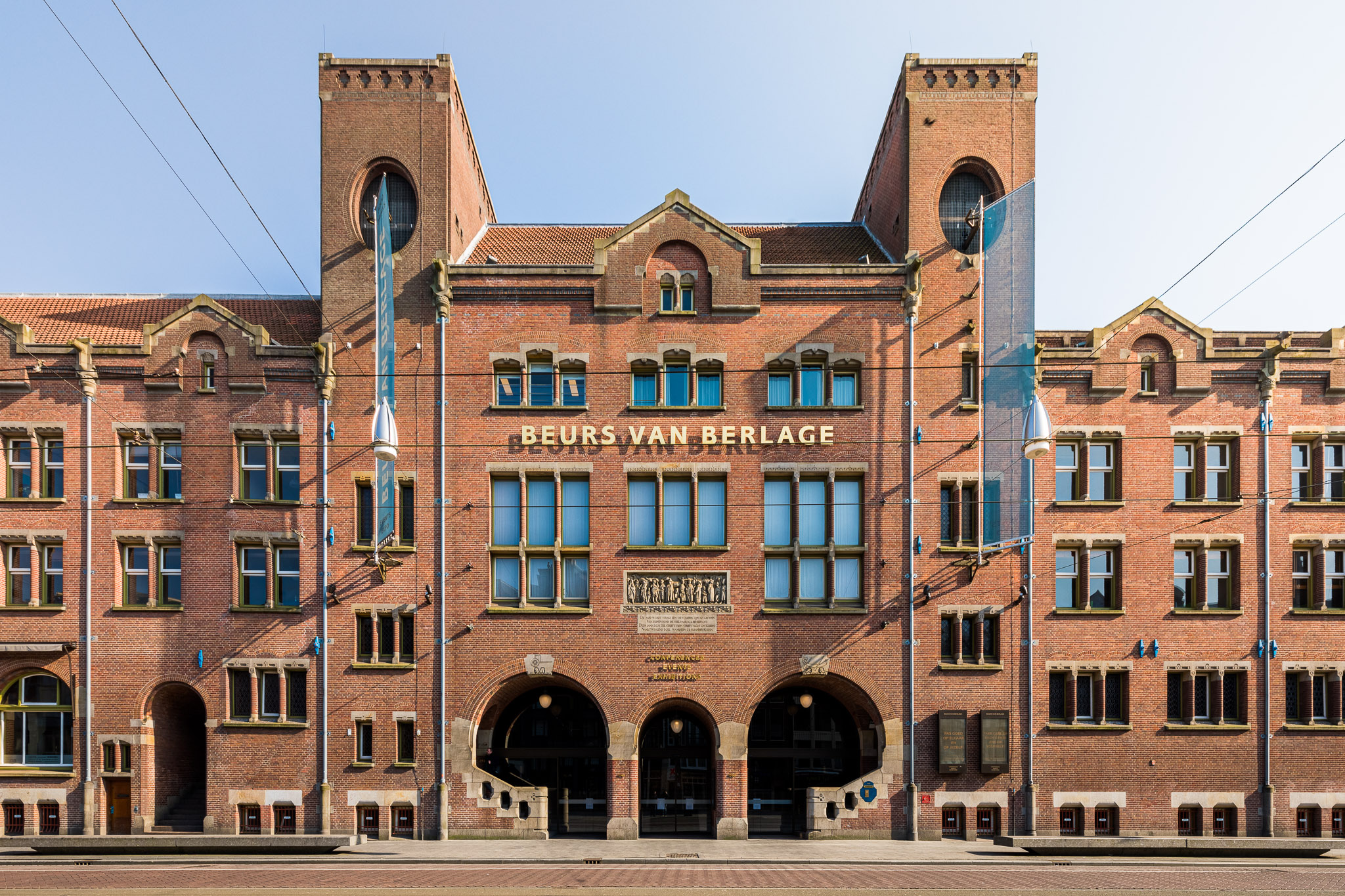
Getting to Amsterdam
By Air:
Amsterdam is served by Schiphol International Airport (AMS), one of Europe’s major aviation hubs with direct flights from across Africa, Asia, Europe, and the Americas. From Schiphol Airport, you can reach the city centre in under 20 minutes by train. Trains run frequently and arrive directly at Amsterdam Central Station, a short walk from the venue and many nearby hotels.
By Train:
If travelling from within Europe, high-speed trains connect Amsterdam to major cities including Brussels, Paris, Frankfurt, and London. All international trains arrive at Amsterdam Central Station.
Getting Around
Amsterdam has an excellent and reliable public transport system, comprising trains, trams, buses, and ferries, operated by GVB. Most destinations in the city centre, including the Beurs van Berlage, are easily accessible by foot or tram. For convenience, delegates may purchase a GVB day pass, which allows unlimited travel on all GVB-operated transport for the duration of their stay. Taxis and ride-sharing services (Uber, Bolt) are also available, but note that traffic congestion and narrow streets can make walking or cycling faster in central areas.
Hotels
We are working with a range of hotel partners across Amsterdam’s city centre to offer delegates discounted rates and convenient access to the venue. A curated list of hotels, including group rate information and booking links, can be found here. We recommend booking early, as February is a busy period in the city with multiple international events taking place.
-
2025 Partnership Meeting
The 2025 WCF Partnership Meeting explored the theme “Our Future: Resilience Through Sustainability” in São Paulo, Brazil.
-
2024 Partnership Meeting
The 2024 WCF Partnership Meeting explored the theme “Aligning for global action” in Amsterdam, Netherlands.
